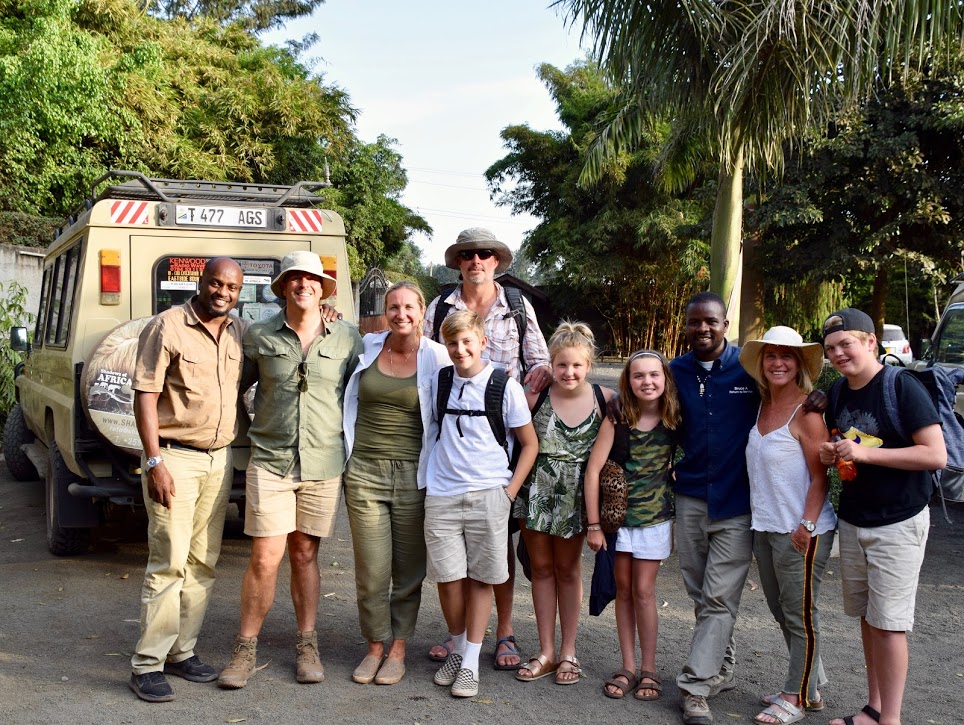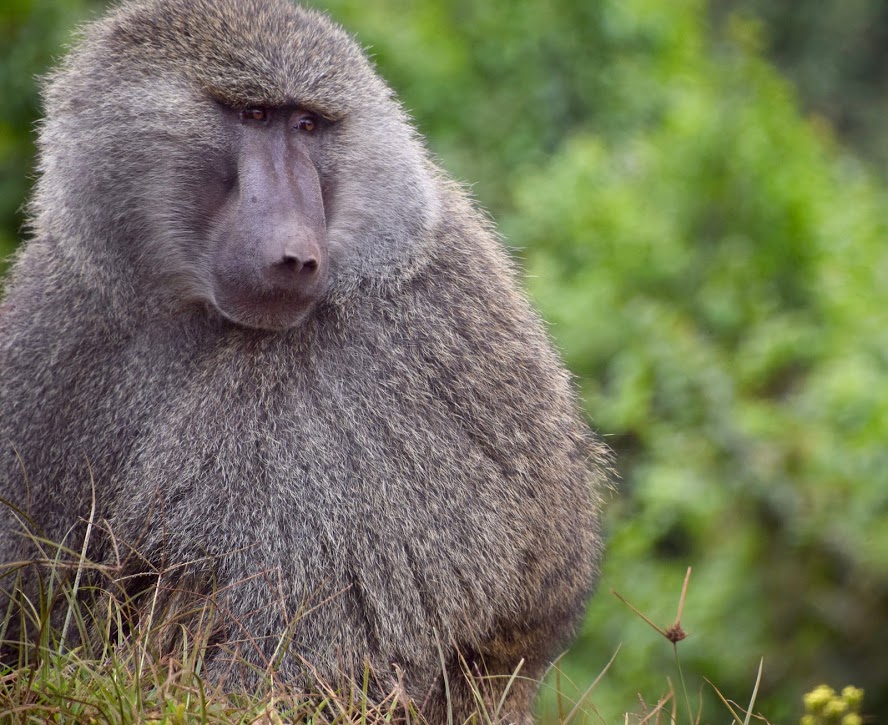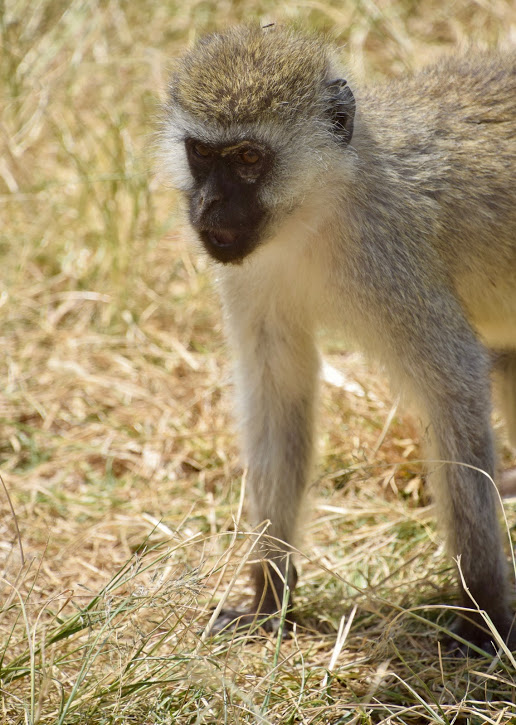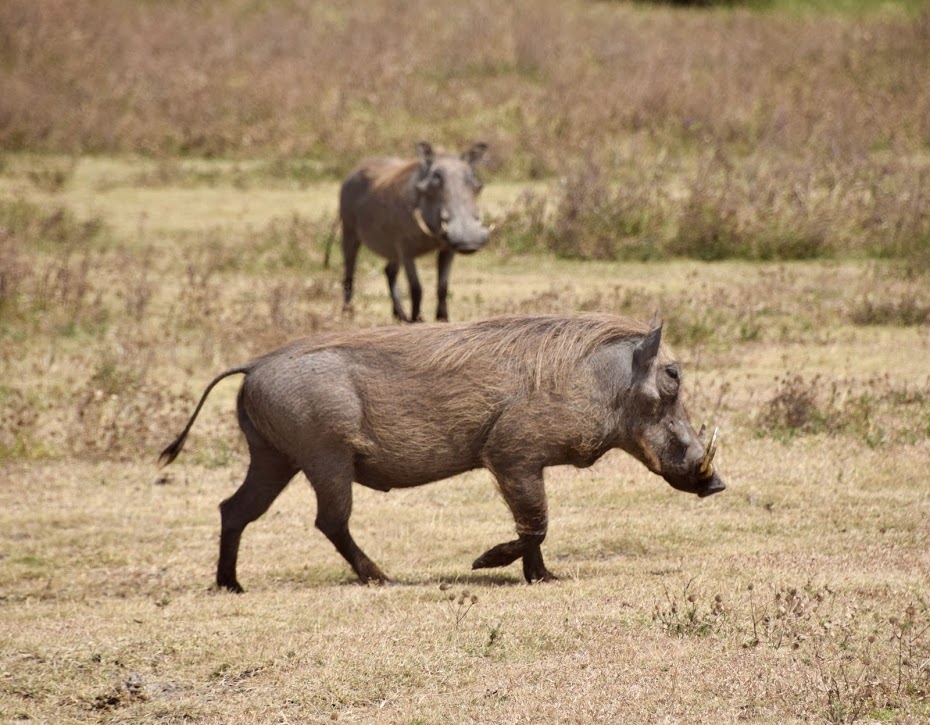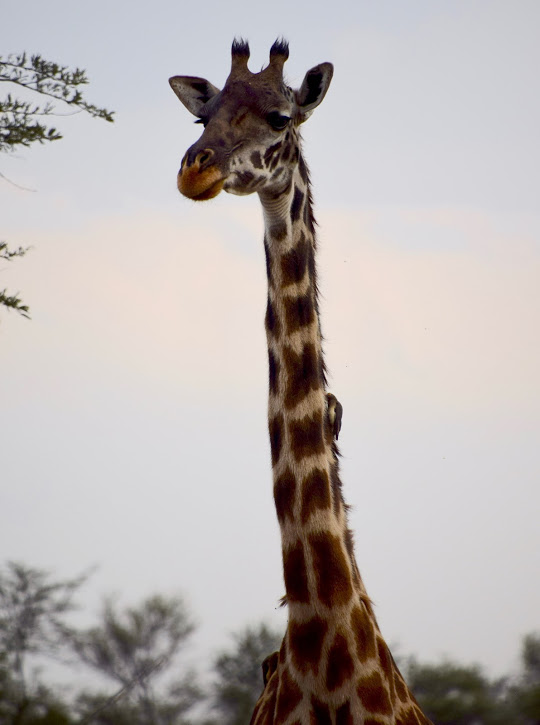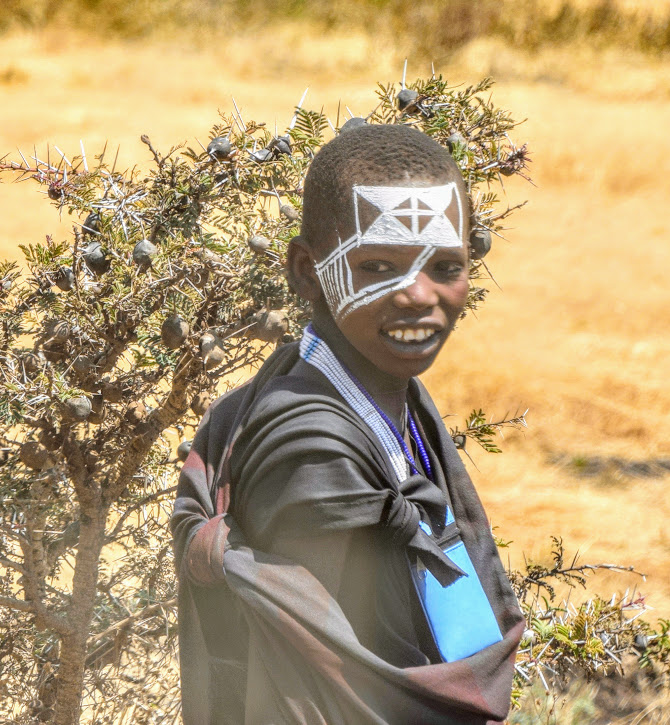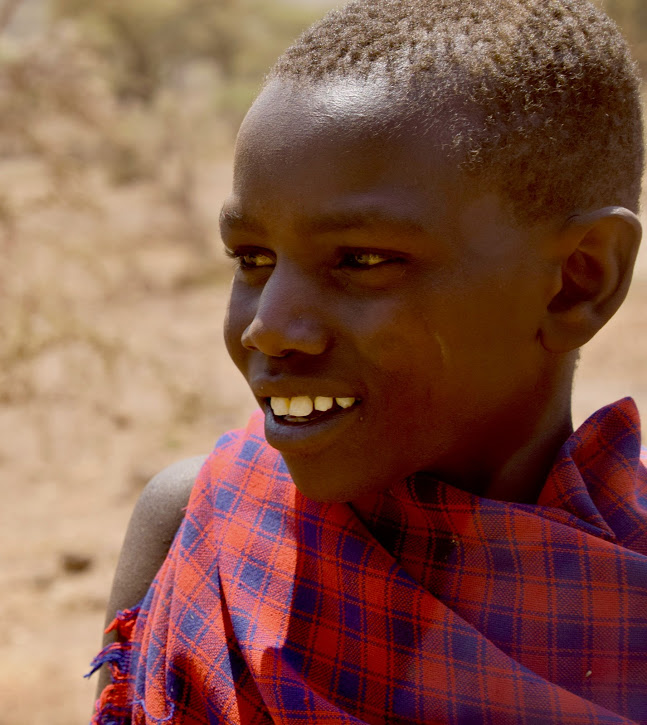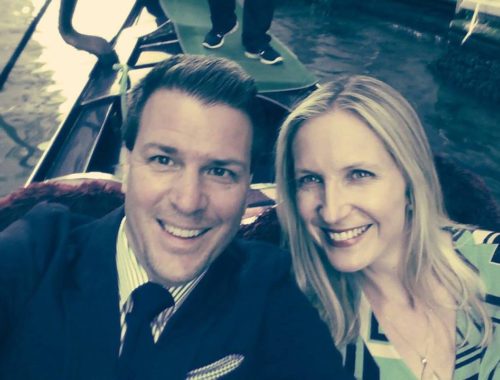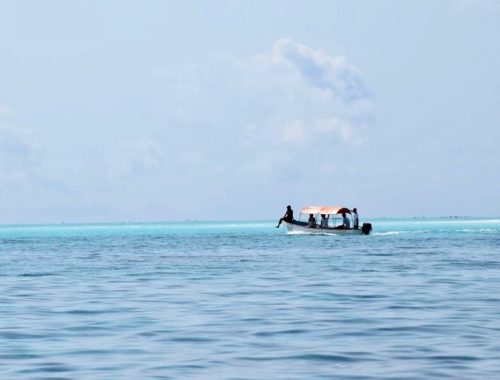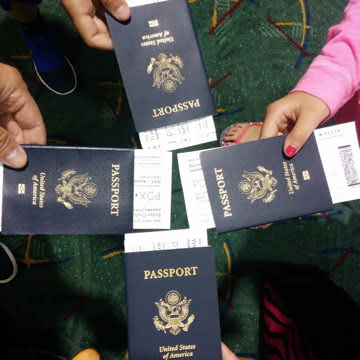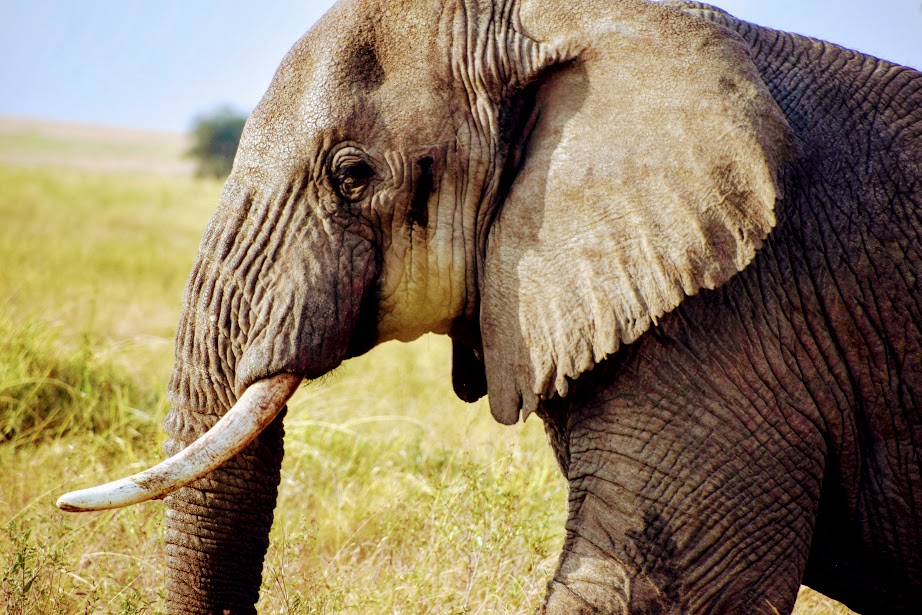
Ready for Family Safari?
I was blown away by safari last summer. There’s something magical about driving the changing landscape of the Serengeti and watching spectacular animals in their natural world. That said, it’s not for everyone, and doing it before your family is ready could be difficult and potentially dangerous.
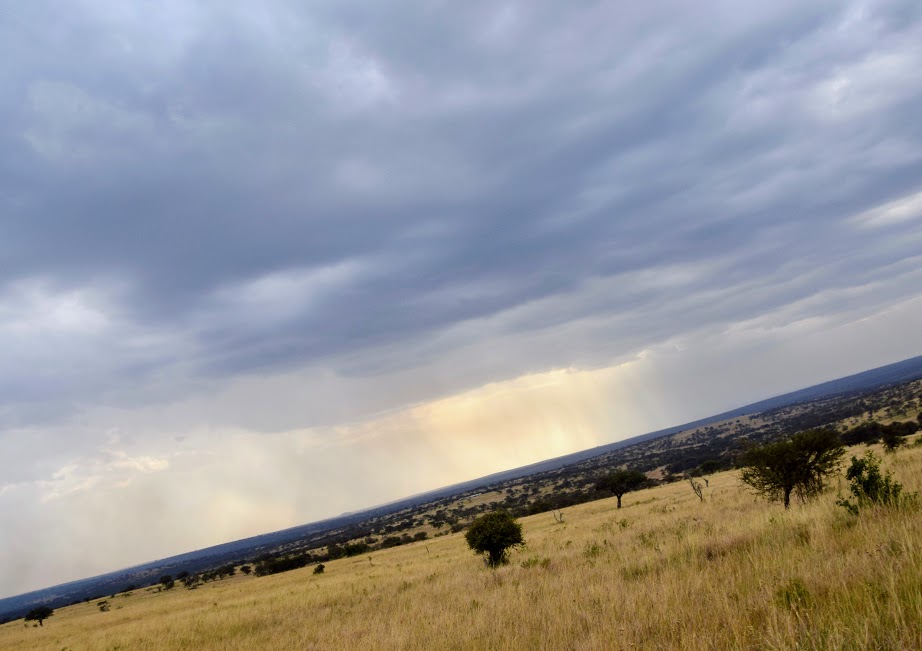
Our first night in Tanzania, we arrived late, piled into a van and drove 90 minutes to our Maasai lodge. We had dinner at midnight and were escorted to our mud huts in complete darkness. We watched with trepidation as our 10-year-old daughter and her friend were led around the path and out of sight. There were no locks, no phones, and nothing but an instruction to flash a flashlight (which we had forgotten) for help.
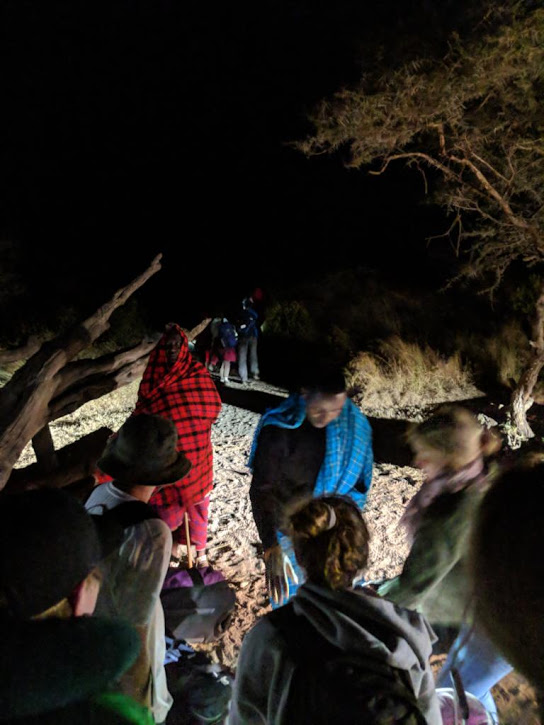
I fell asleep from sheer exhaustion (did I mention you take two 10-hour flights, back to back), and was awakened in the middle of the night by the sounds of a wind storm. I lay there worried, hoping the kids followed directions and stayed in their huts, and that family safari wasn’t a terrible mistake!
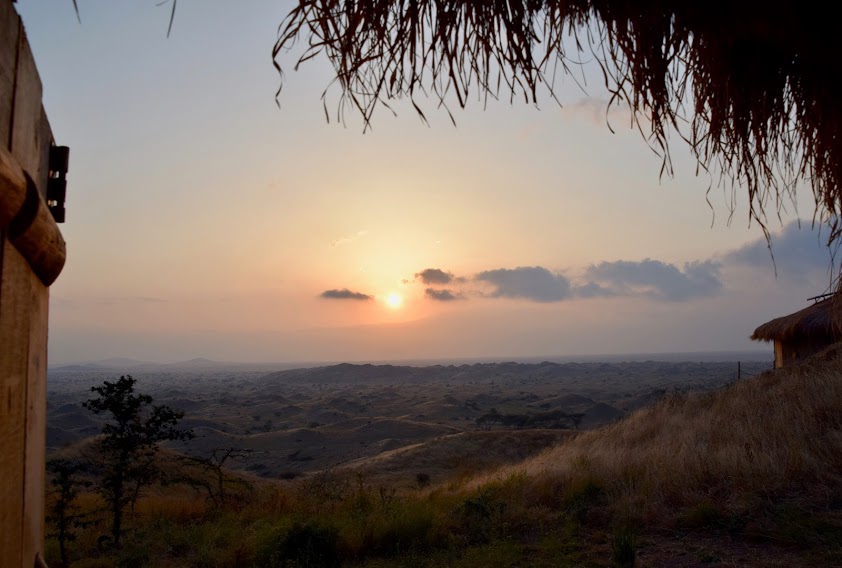
When the sun began to peek up over the spectacular horizon, I found the other huts, the girls in theirs, happily chatting about how cool this place was (it really was unlike anything we have ever experienced). I was relieved and reminded how comfortable they are making their way in unfamiliar places around the world.
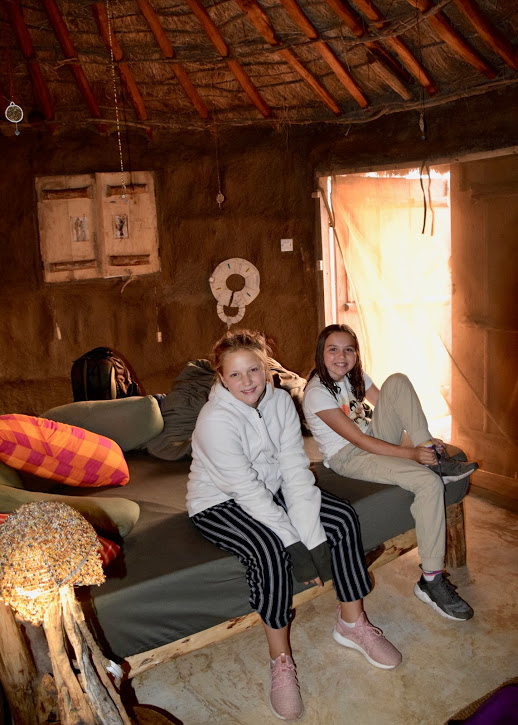
Two nights later, we arrived at our first tent camp. After dinner, the girls were escorted back to their tent and zipped in. Again it was pitch black, and there were no phones. Hearing strange sounds and scared because their tent was shaking, they radioed the front desk. Amidst tears, they were able to stay calm and stay put while guards checked and reported back.
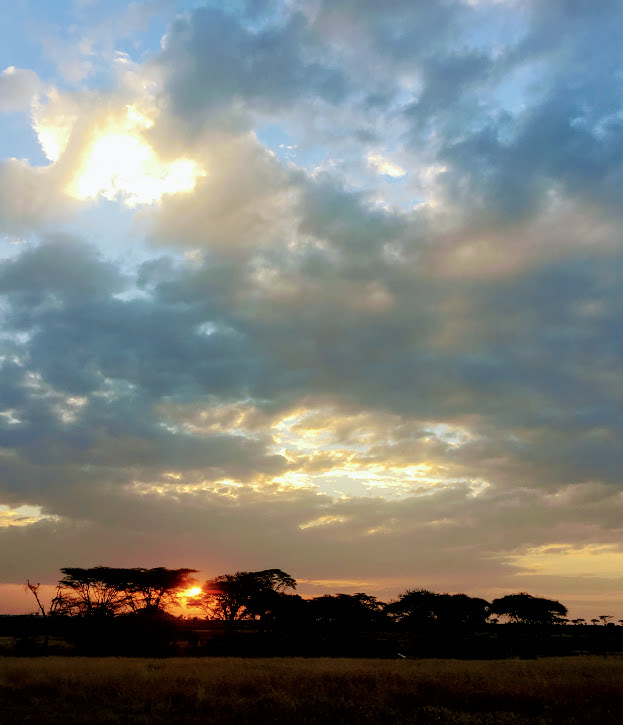
The next morning at breakfast they were animated (and a little annoyed we had turned off our radios – oops) telling the story. They laughed about the casual instruction, “don’t worry – it’s just a couple cape buffalo (1300 pounds each) scratching themselves on your tent wires.” Fears quelled, they went back to bed to rest up for our first full day in the Serengeti.
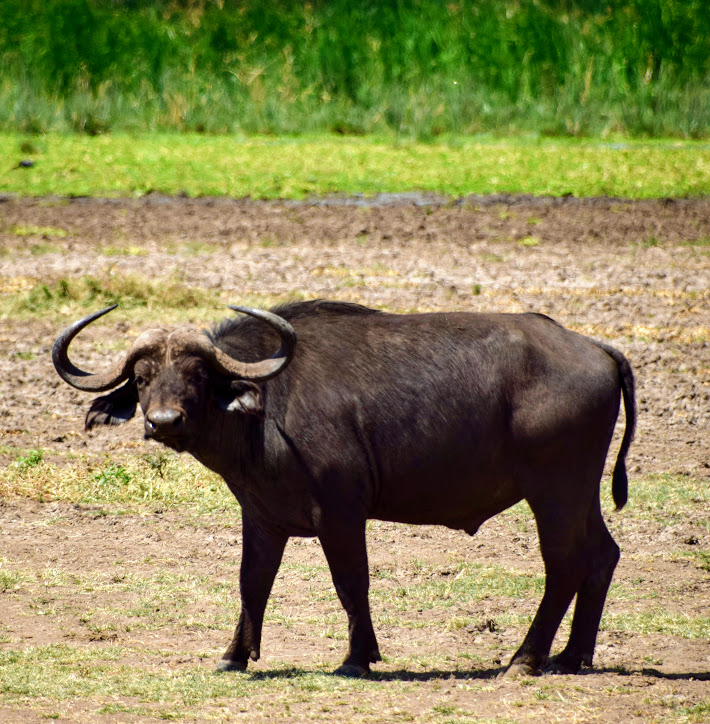
I mention these tales to put the experience in perspective. African safari is not like any trip we’ve done before. Before you go, consider:
- How do you do with long haul flights? Are your kids able to manage eight to 10 hr flights, back-to-back?
- Are you all up-to-date on vaccines, and are you willing to get more shots in preparation?
- Will your kids eat whatever they’re given (usually lunches are a bento style box of meat and rice) and an array of food styles?
- How do you feel about driving bumpy roads through the Serengeti for up to 10 hours a day? Without carseats?
- How easily bored do your kids get when sitting for hours? Will they drive you crazy asking, “are we there yet?”
- Are your kids old enough to stay in their own tent in the middle of nowhere, or will they get scared on wander off?
- How do they do with unfamiliar environments, hot sun and lots of dirt?
- Can you all roll with early mornings, long days and schedule changes?
- Do the kids become upset seeing poverty or animals killing each other?
- Are you ready to drop a small fortune?
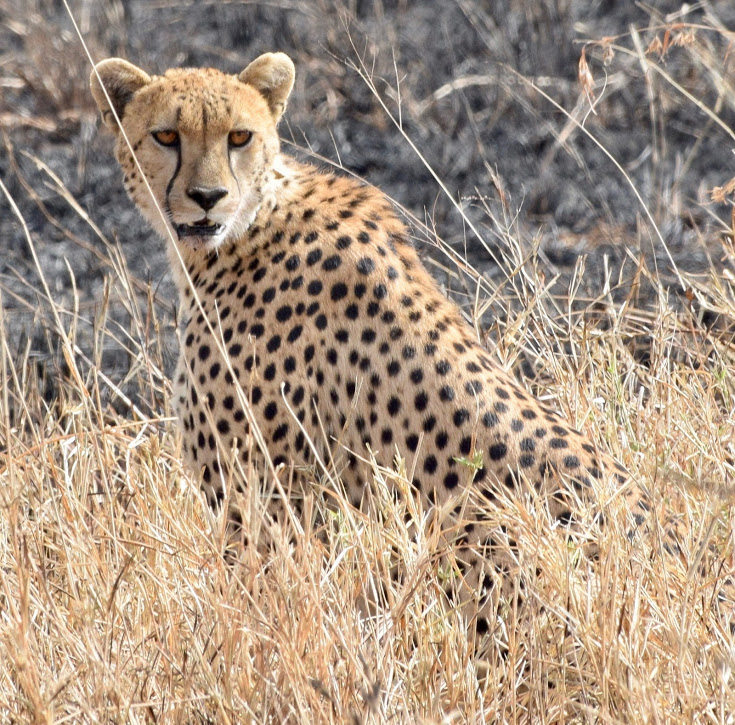
Safari is not for kids who scare easily or don’t follow rules. Kids need to unquestionably follow instructions like “don’t move,” “stay in your tent,” or “don’t go out without escort.” A rambunctious kiddo can startle animals while on safari, either limiting your sighting experience or actually putting you in danger.
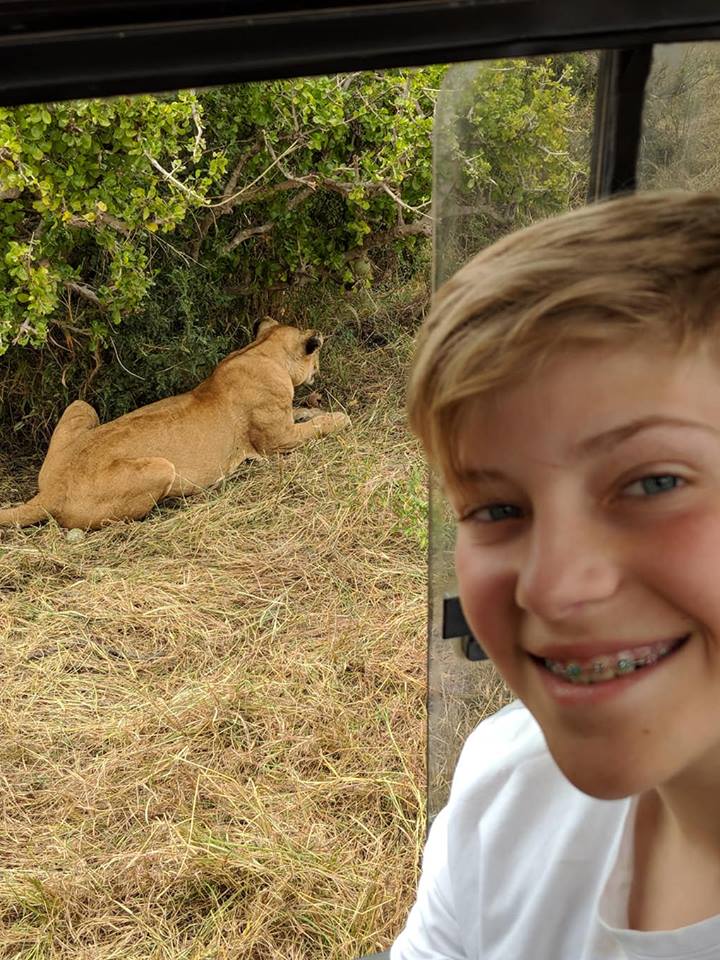
If you’re concerned about staying away from your kids, some camps have family-sized tents where kids can stay with you (great for single child families, in which case you could age down a bit). That said, it limits your options. Plus, there’s something pretty fabulous about groggily opening your eyes to the sounds of lions and sipping coffee just the two of you.
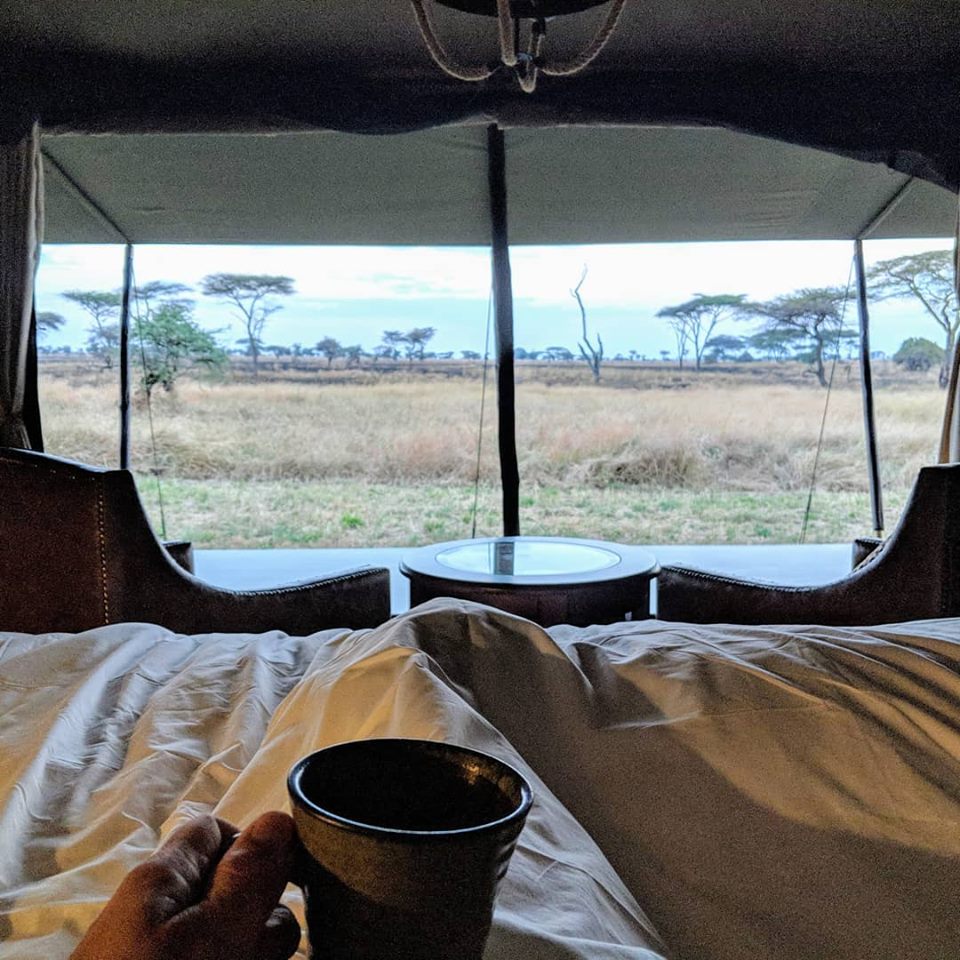
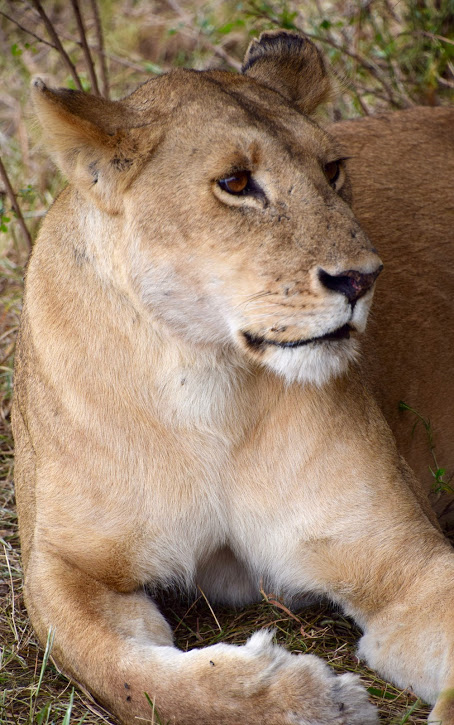
Safari means long days. When I booked our private safari for two families, I was thinking half the group could safari while the other half relaxed at the camp or headed out a little later. What I didn’t realize is that you’re moving each night and it’s not a circular route, so your group all stays or goes together (also proves handy with a car breakdown, so the second vehicle can get help if necessary). That usually means getting up around 6:30 to quickly eat and be on the road by 7:30ish. This way you see as much of the park as possible before curfew (tours must arrive at their next destination before dark – about 7pm during migration). You’re wiped out by the time you get to camp for dinner, and there’s no room service (you wouldn’t want wild animals drawn to your tent).
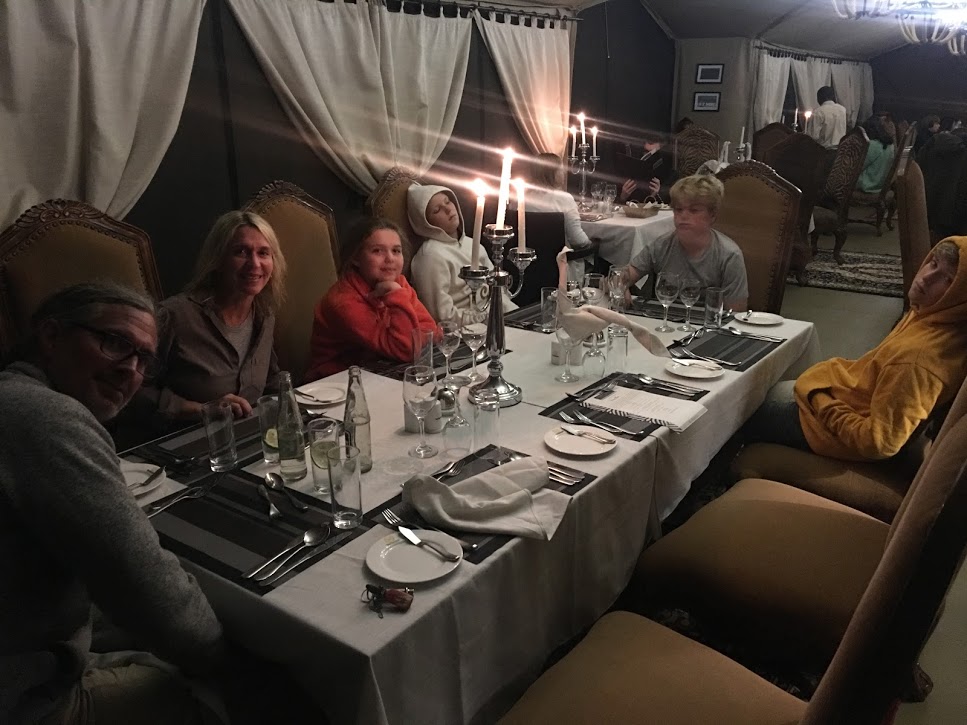
Trying to stay awake for dinner 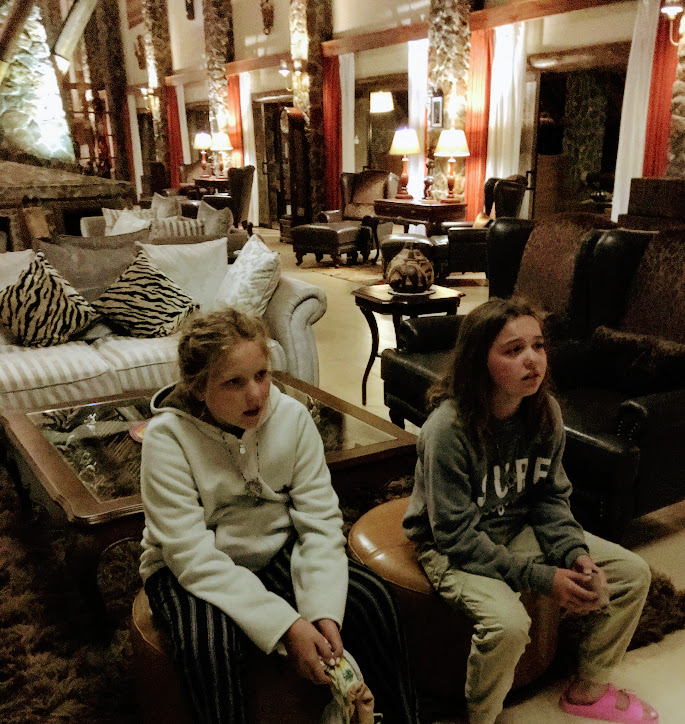
Pooped on arrival
Safari is also not an easy place to get medical assistance. Once in the Serengeti, you’re many hours, maybe days, drive from major medical. There is an airstrip at one end, but if you’re someone with medical access needs, you may be better to skip safari. You could also do something like the Ngorongoro Crater, where you can see lots in one day and stay in resorts closer to main towns.
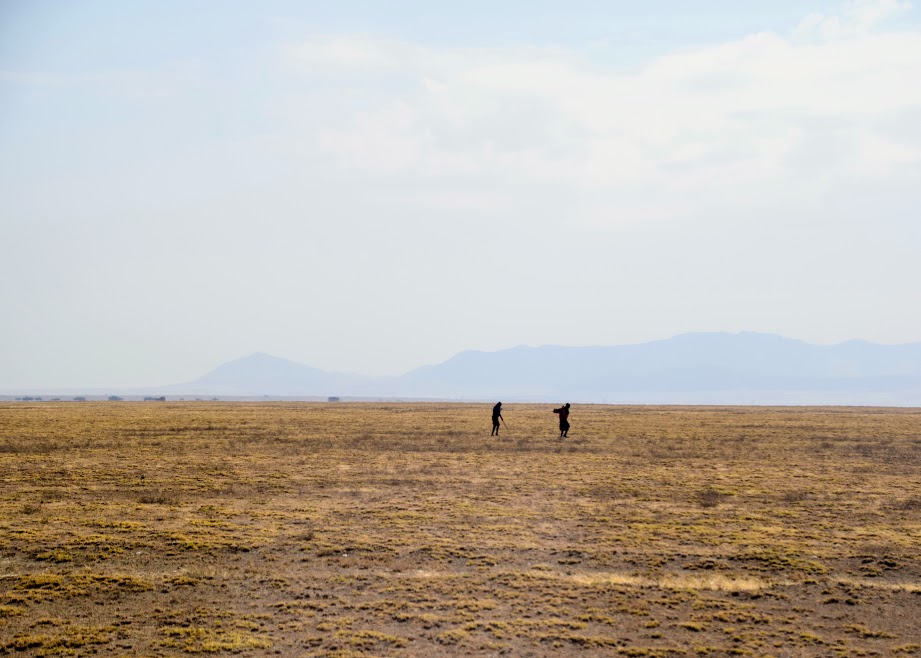
Our 12-year-old son got some kind of food poisoning or virus our first day in the Serengeti and had to medicate and sleep it off while we kept moving (make sure to get an antibiotic for all family members and also bring Tylenol, Advil, Imodium or anything else you might need). There’s also lots of dust and dirt in the Serengeti, so bring inhalers, Visine and antihistamines as well. We also relied on Nuun hydration tablets to keep everyone well in the heat.
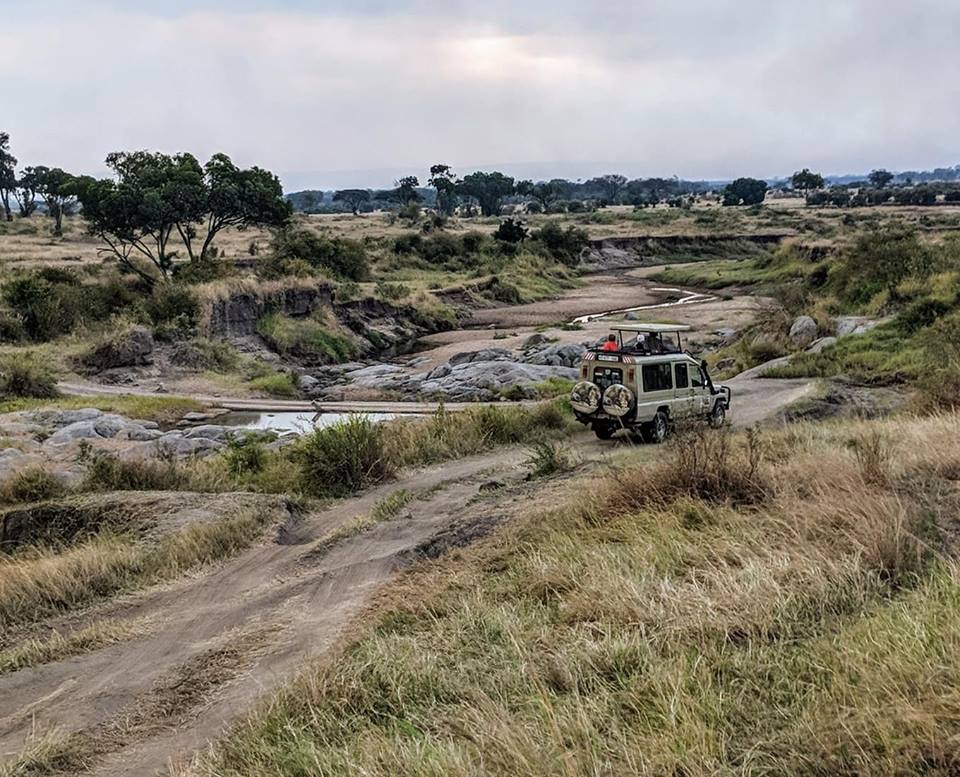
Also know that, other than your lodging, restrooms on safari are usually the dirt road behind the vehicle, so not for the prim or ultra-private kiddo (or parent). BYO hand sanitizer, Kleenex, wipes, feminine products and a few ziplock bags for disposal.
All worth it to see some the amazing wildlife…
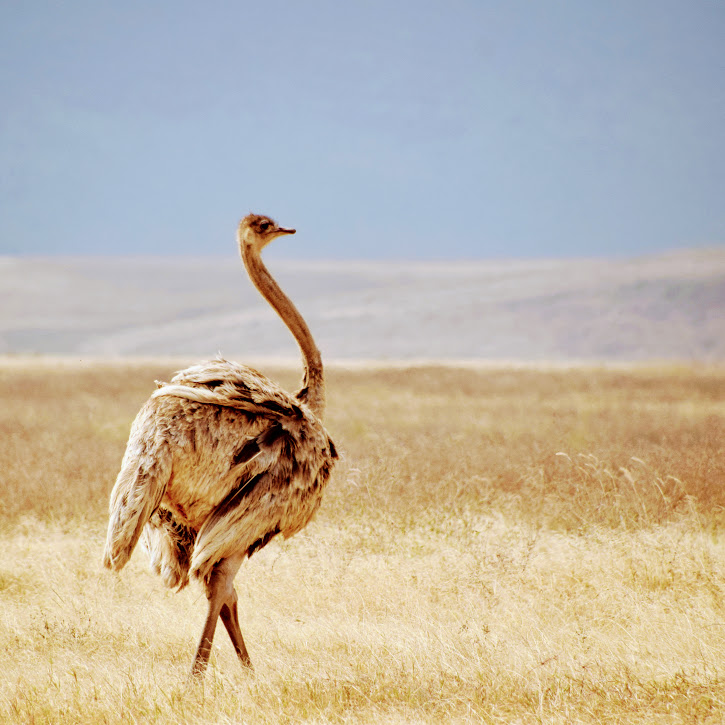
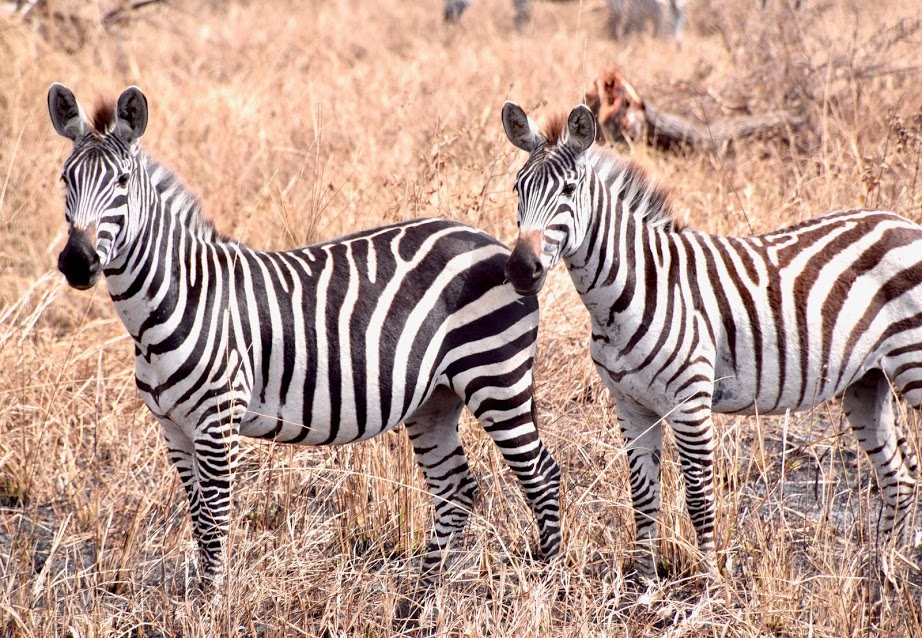
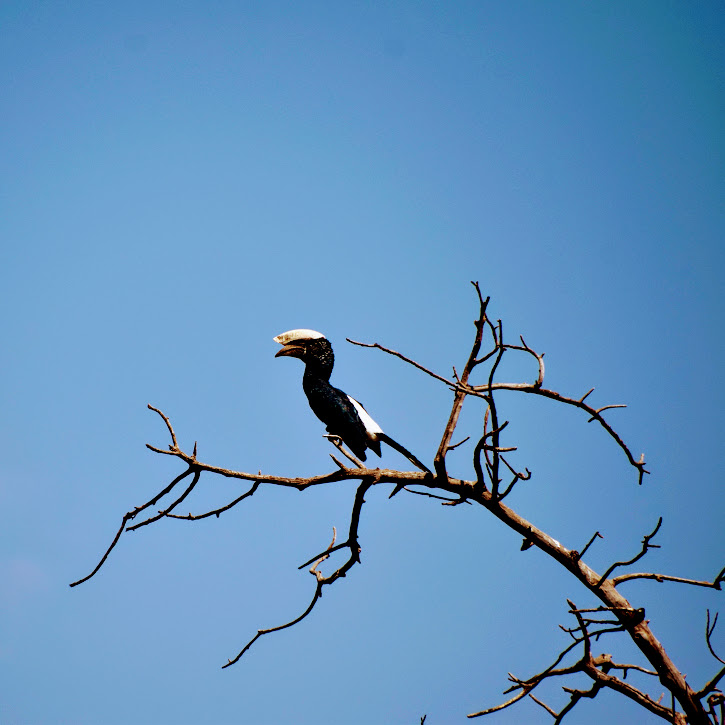
And did I mention patience and flexibility? You’ll spend hours looking for animals, sometimes more easily sighted than others. You’ll also be speeding over rutted out dirt roads, so car troubles happen. We had two different truck breakdowns, which required we relax and enjoy the scenery while our fearless leaders and other good samaritan guides stopped to help.
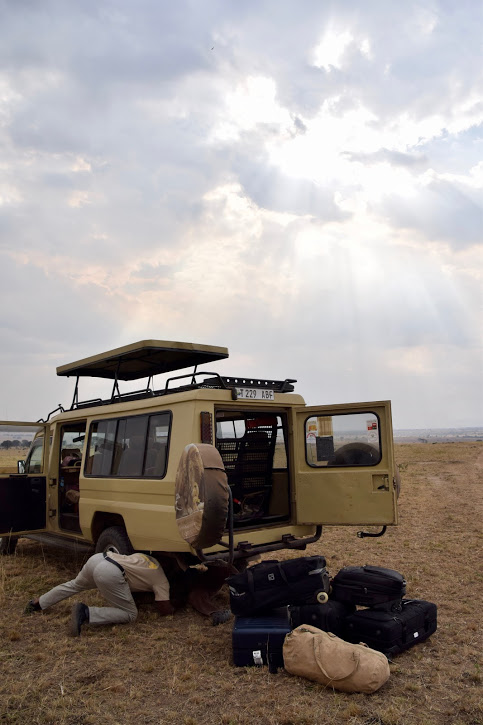
Guides fixing the truck 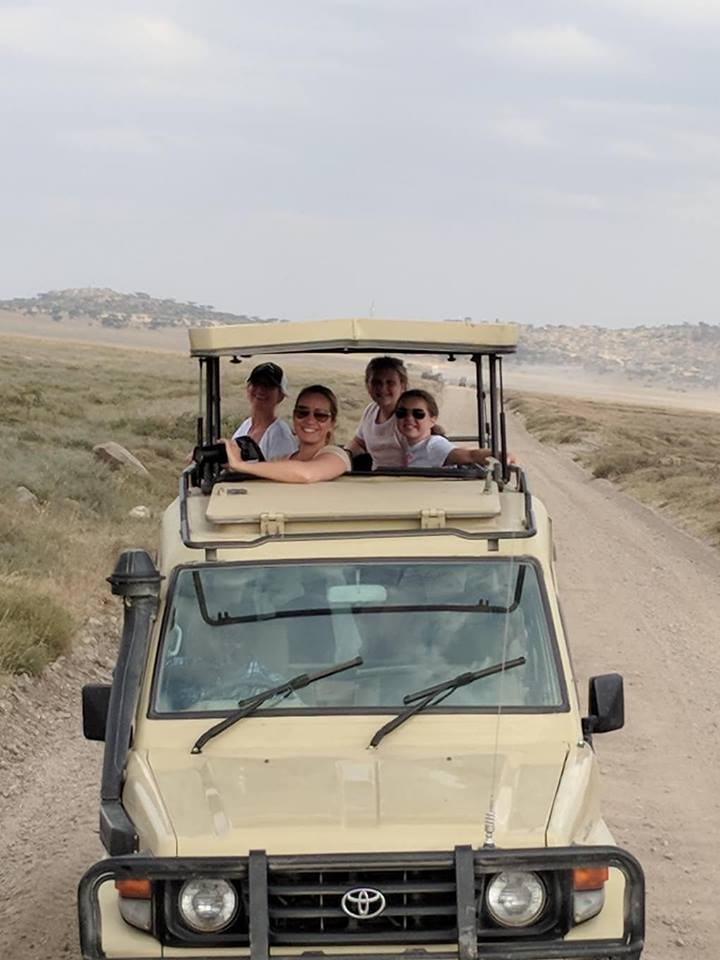
We enjoy the view
There’s plenty of time to nap, play cards or listen to music on the road. Some kids love taking photos and using the binoculars to search for animals, but for others this might drive them (or you) crazy. Make sure you and your kids can handle this much car time.
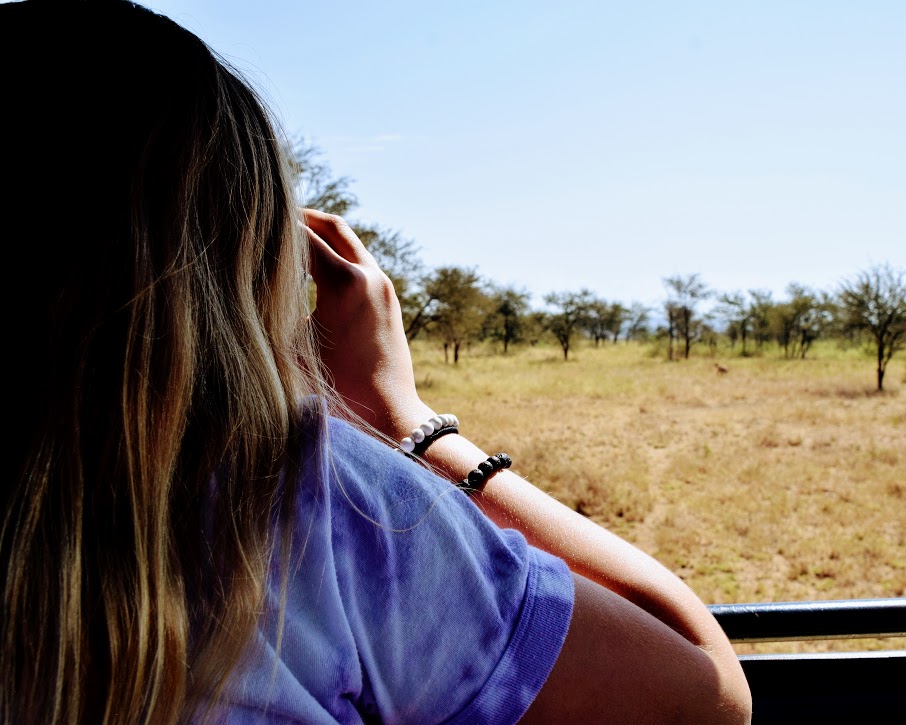
Watching 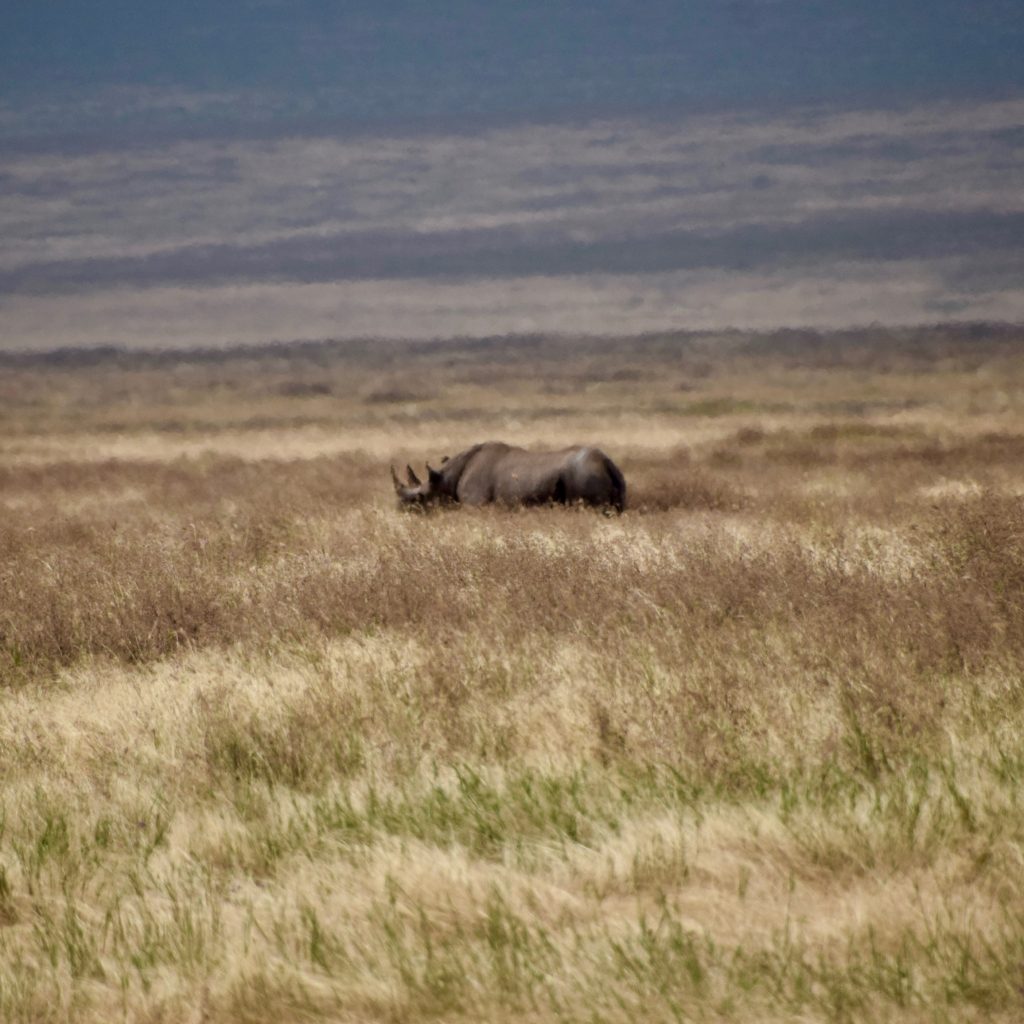
Rhino sighting
One of our favorite things was standing in the open top trucks and “safari surfing” – holding on tight as your driver speeds along the bumpy roads. While this was super fun, we did get a couple bruised arms, and it wouldn’t be great for the littlest littles.
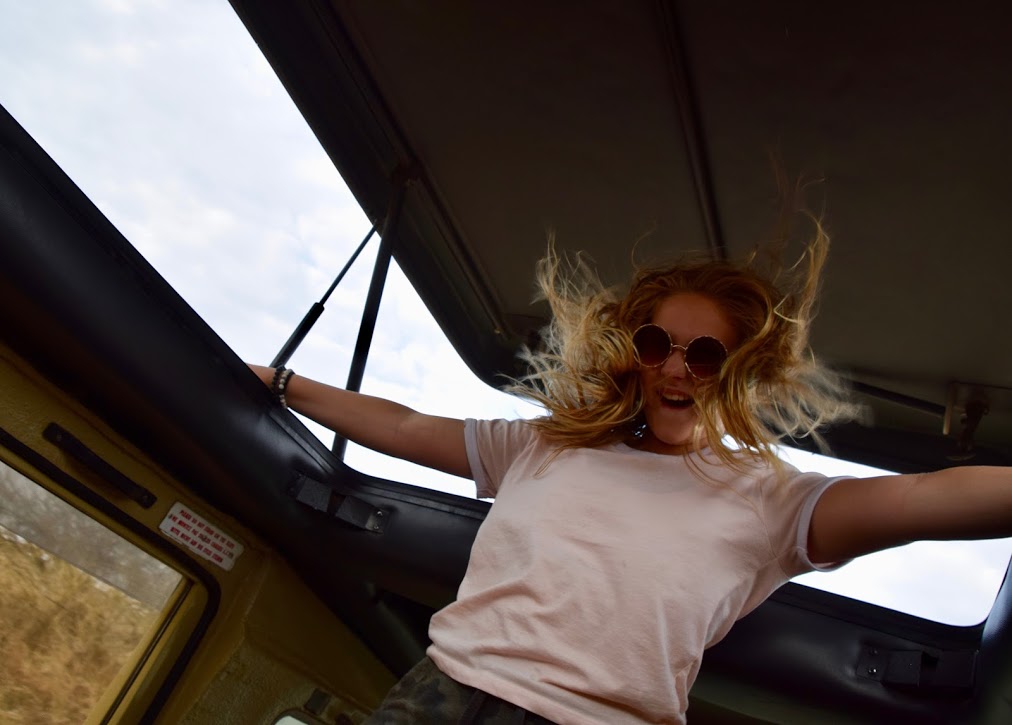
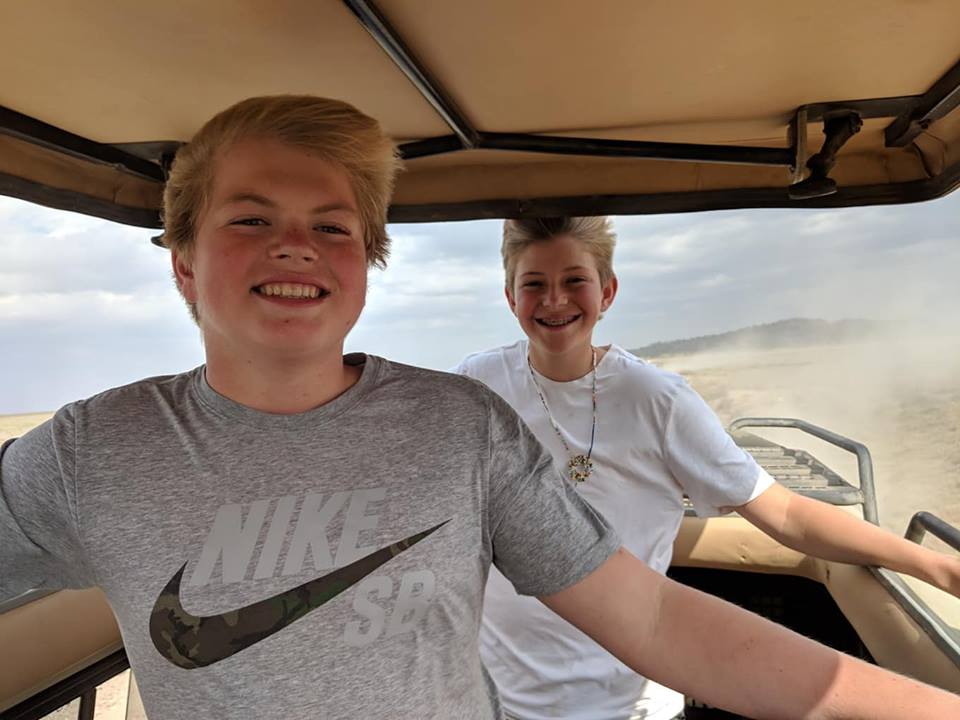
Safari also exposes kids to poverty and very basic living conditions. They’ll see children herding goats in the hot desert, or begging for food or money, sometimes barefoot. If you venture into villages outside the park, conditions are very different than what your kids are used to.
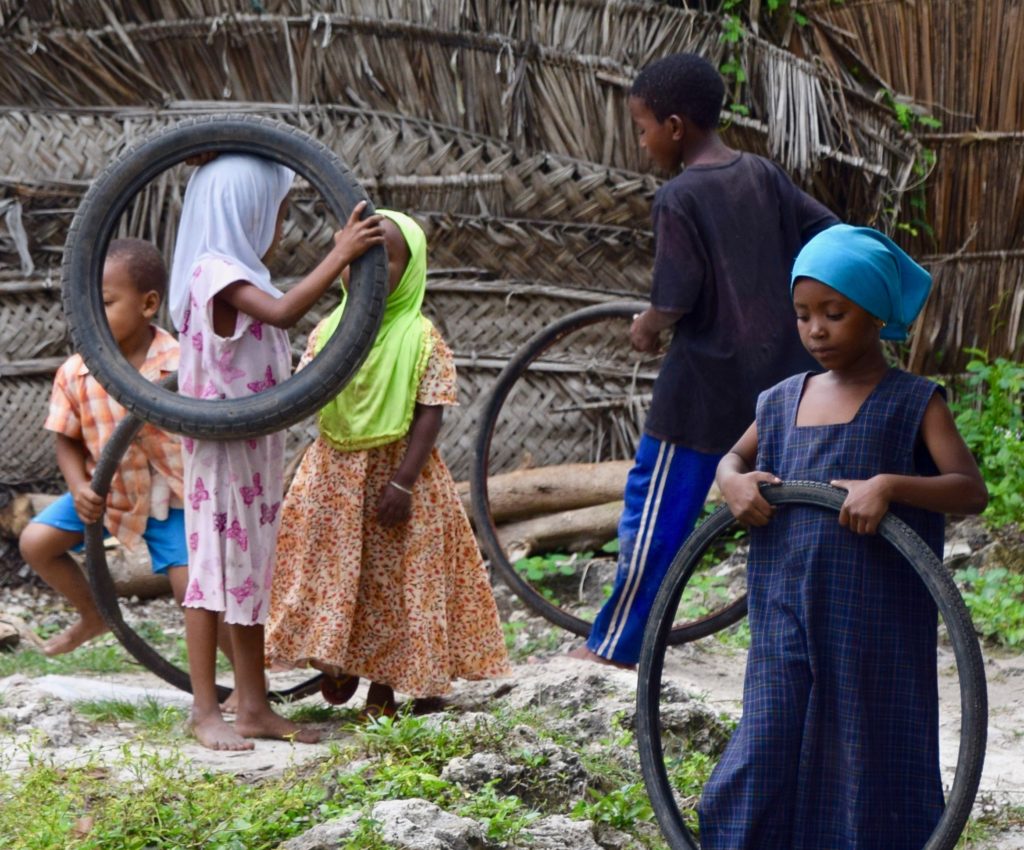
It can be heart wrenching, but also a great lesson for kids about appreciating life’s simple pleasures, especially since most all the African children we saw were smiling. Make sure your kids are emotionally mature enough to handle this, and talk about it before, during and after your trip.
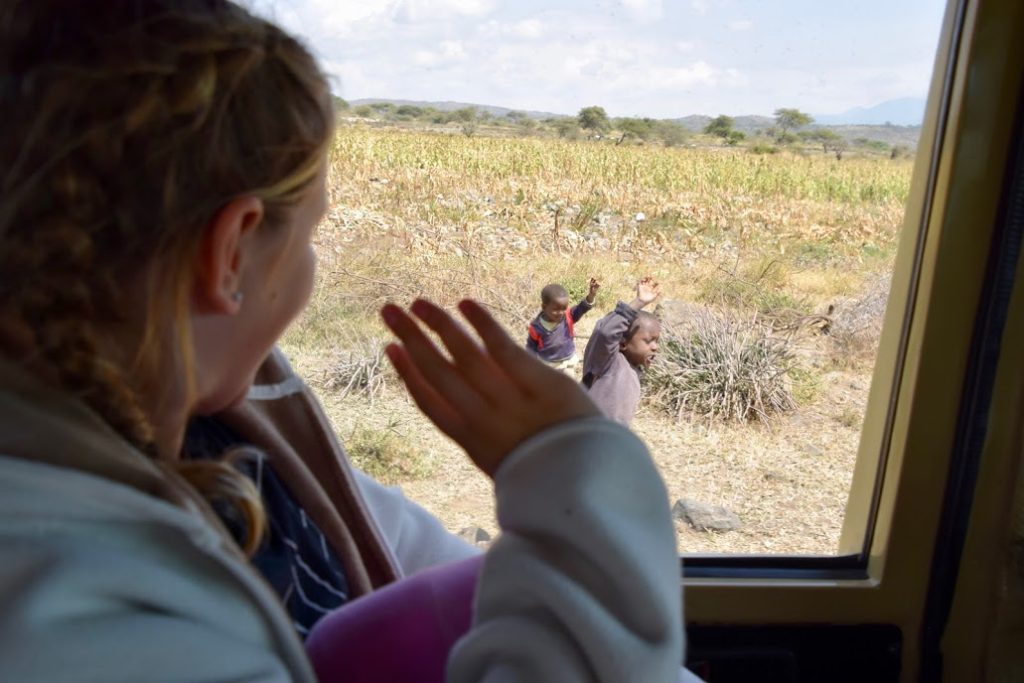
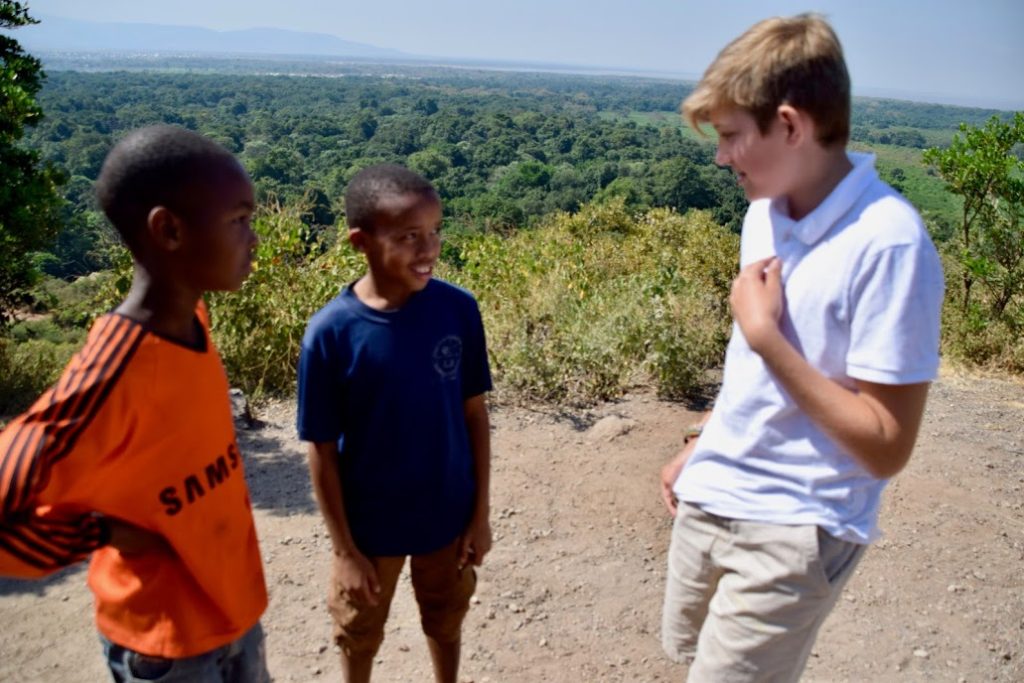
To see the great migration, which I highly recommend, you’ll be traveling either to Tanzania or Kenya late July or early August; it varies based on the year’s climate, so you’re guessing a bit. Guides and lodging book early for the migration, so for 2020, you’re already at the tail end of booking. We used Shadows of Africa and loved our amazing private guides Moody and James.
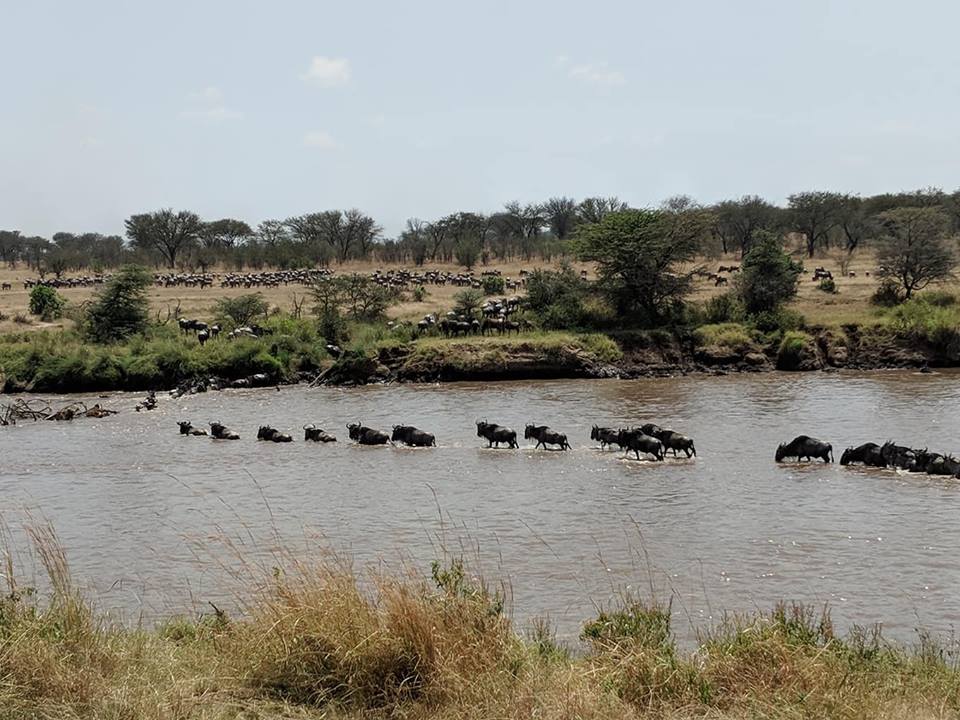
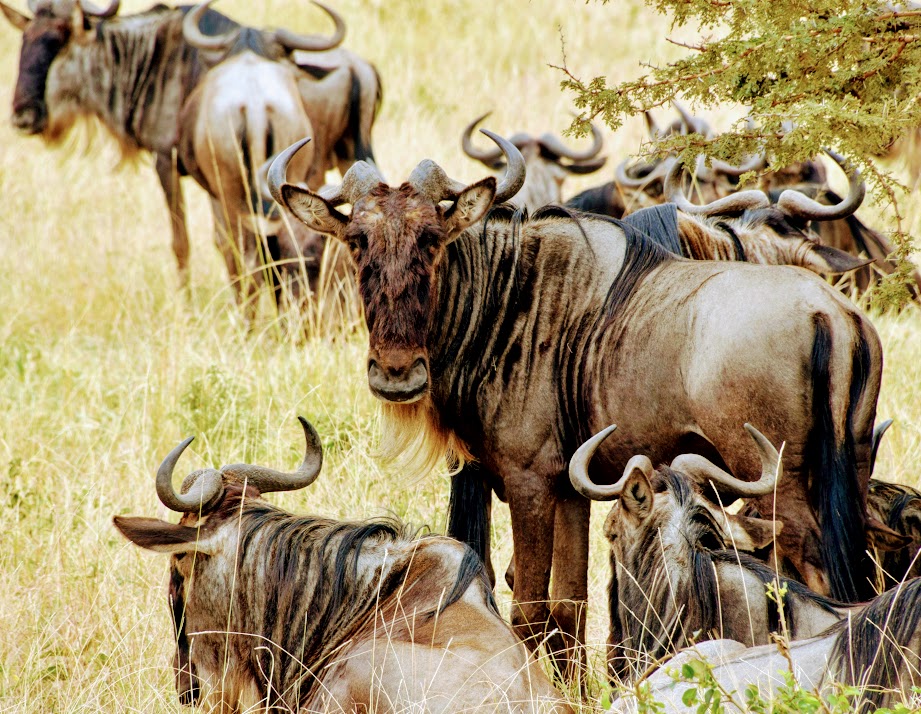
And then there’s price. Safari was easily the most we’d ever spent for a week of vacation. Flights alone run at least $2500/person, since you’re flight time is the equivalent of two flights to Europe. Plus, you really can’t safari on your own. Nothing is marked, animals are dangerous; you’re paying the expertise of your guides. It is definitely worth it; just make sure to do it when everyone in your group can really enjoy it.

Evening festivities 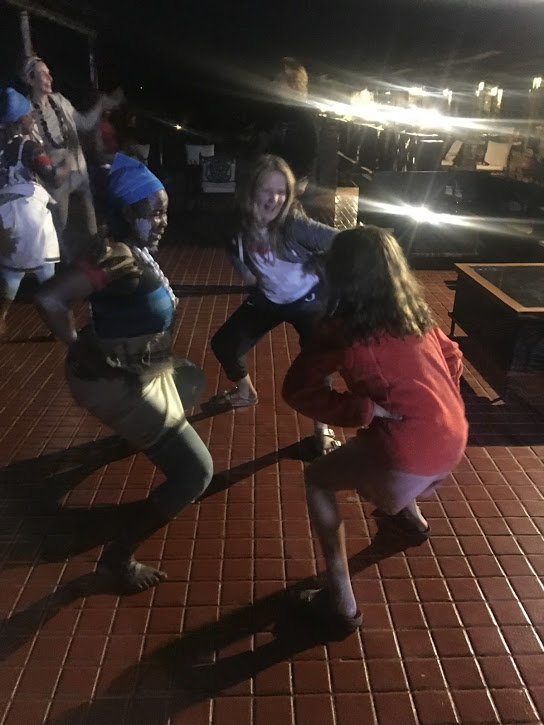
Learning African dance
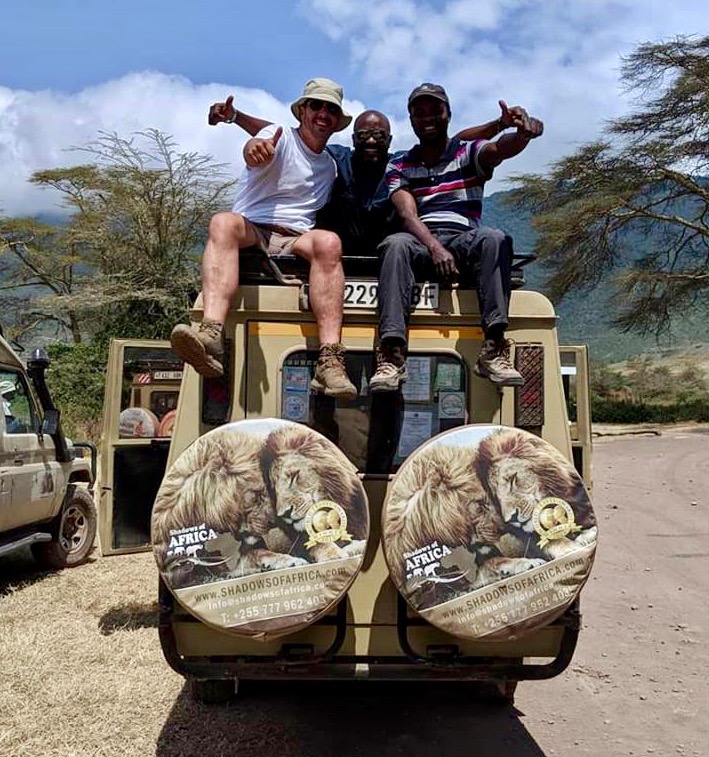
To get more bang for your buck, add a week in Zanzibar to relax on white sand beaches and swim wild dolphins in the wild. Or, if you have time, I also recommend adding a layover in Europe on the way there, back or both.
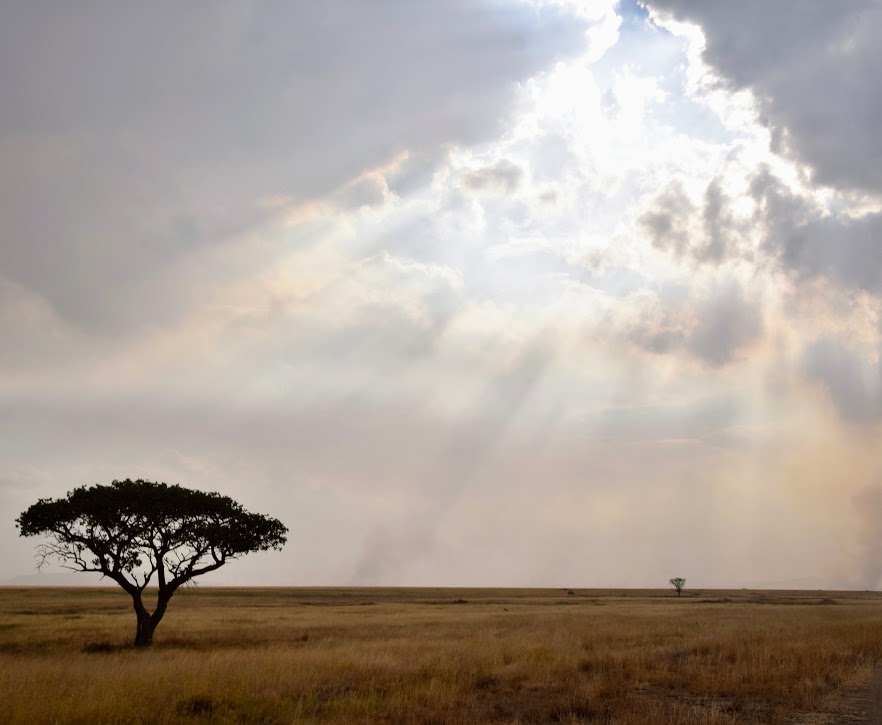
Know that these considerations are definitely not meant to deter you. Go after you’ve traveled at least a few far flung trips with your kids, and they’ve proven to be independent and flexible travelers. It’s a perfect experience with tweens, teens or even young adults. Safari is one of, if not the, most awe inspiring family trips we’ve ever taken. When your family is ready, it’ll be the experience of a lifetime!
